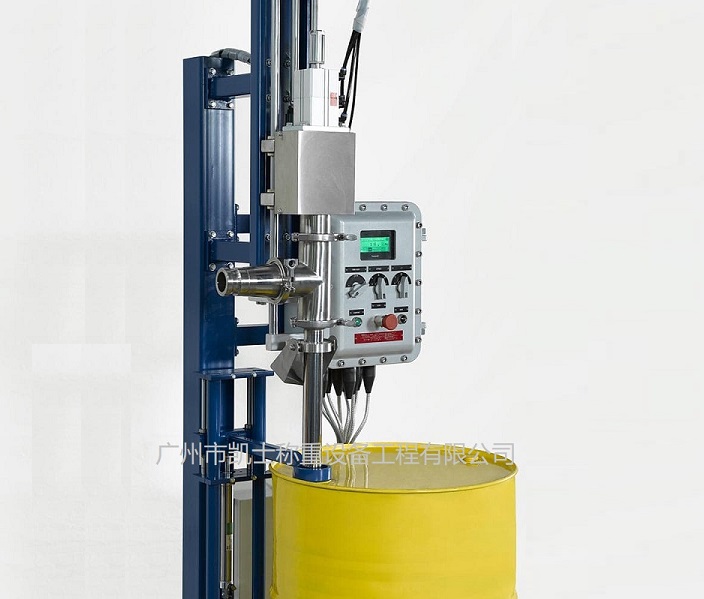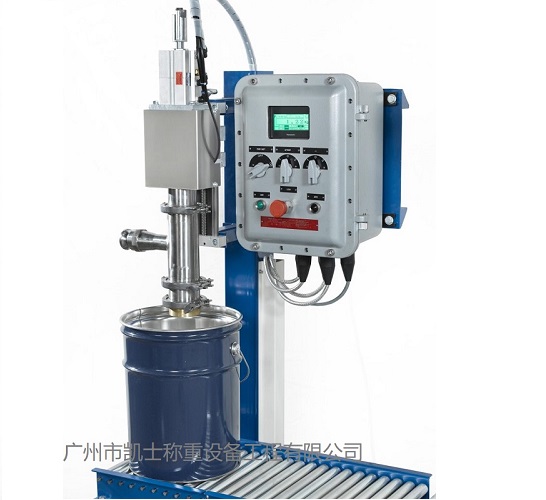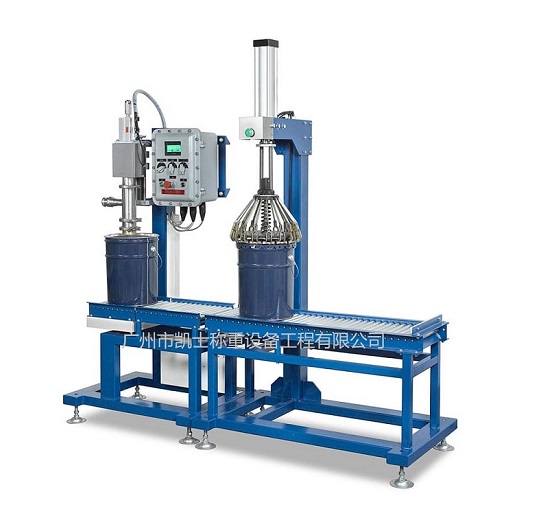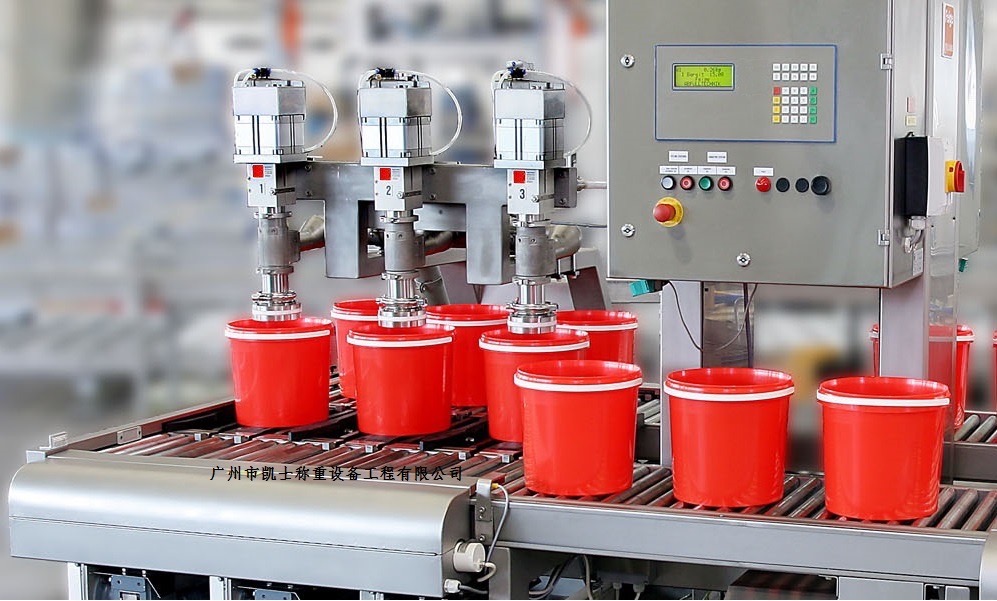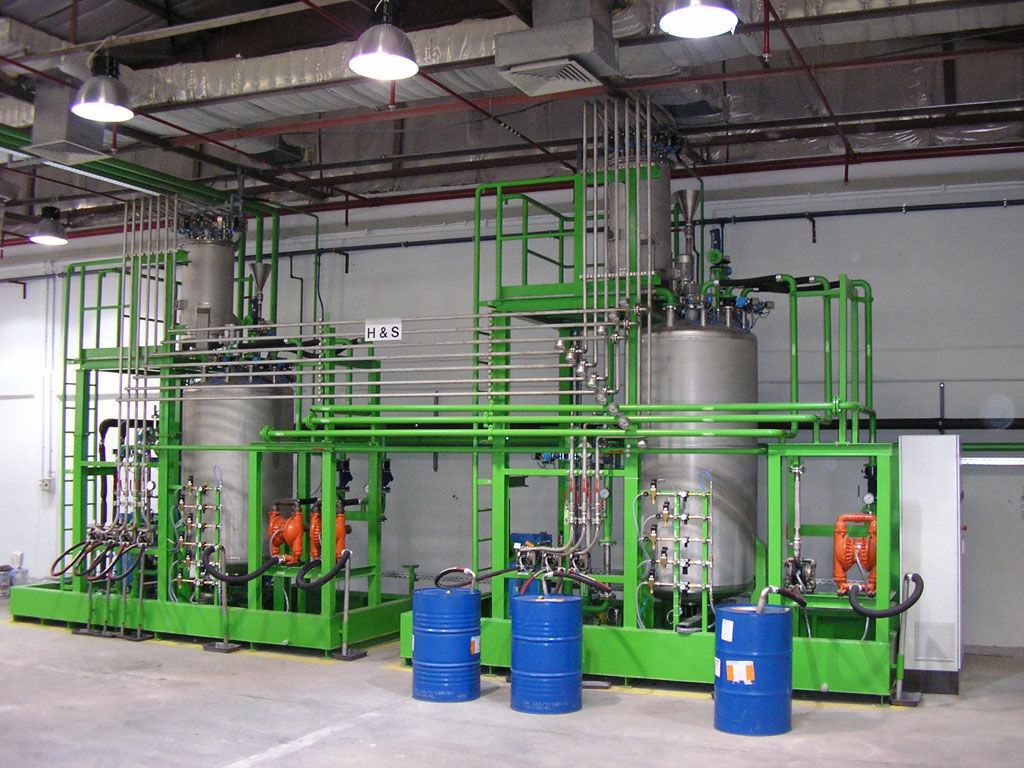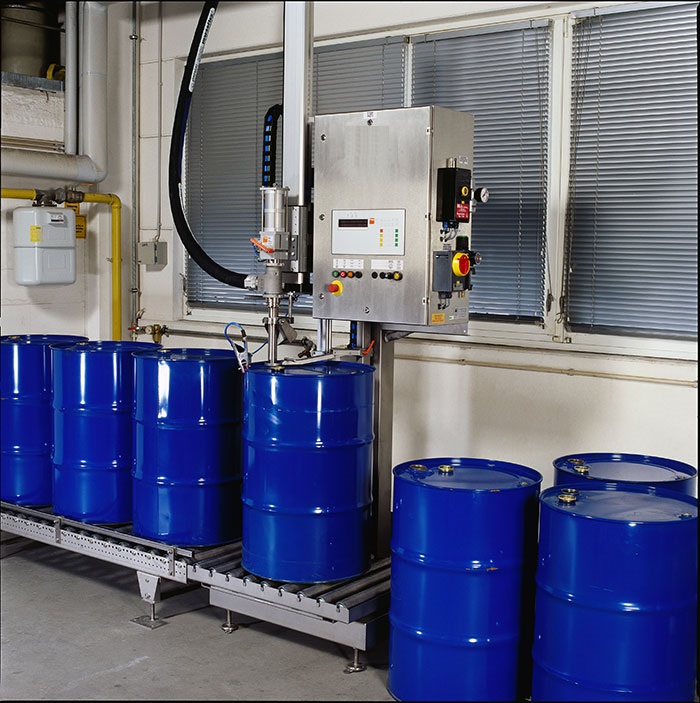

 2022.09.24
2022.09.24Summary:The intelligent automatic filling machine control system uses Siemens PLC and color touch screen as the control core. It uses Hefu motor and cross-frequency control technology to accurately realize the intelligent filling process. It realizes information transmission on the industrial site through fieldbus technology to meet real-time monitoring and intelligence. According to the filling control requirements, the communication transmission protocol was planned, the production process of intelligent filling was set, and the safety linkage alarm device was designed and implemented. Through actual on-site testing and application, the system was safe, stable, accurate filling, and reliable in operation.
With the rapid development of the economy, filling machinery has been applied to all walks of life in China, such as food, chemical and other industries need a large number of filling to achieve modernized production, at present, China is engaged in the production of filling a lot of enterprises, filling industry development is also very fast, but compared with foreign countries, there is a big difference in the varieties of filling products, technical level and product quality. Foreign advanced filling machinery has been equipped with computer-controlled automation, intelligent sensing, industrial robots and other high-tech, China's filling products in the performance there is a gap.
1 intelligent filling system
Intelligent automatic filling machine mainly consists of three major parts of the filling equipment feeding, filling marking and so on. Which filling machine feeding part of the requirements to achieve automatic completion of the filling equipment detection, lack of material alarm, congestion alarm, congestion pause, automatic transmission and other functions; filling part of the requirements to realize the automatic transmission of the filling system, the detection of equipment, filling materials, automatic injection of people to accurately determine the amount of filling amount of how much can be realized by the configuration of the filling process, automatic pressure sealing of the filling equipment and other functions; marking part of the requirements of the automatic identification of the equipment, Automatic labeling equipment, remote reception of labeling information and other functions which in each process, requires a perfect safety protection measures.
2 System Hardware Composition
The core components of the system is mainly based on Siemens SIMATICS7-300 series programmable logic controller, the input module is 24 points relay contact, the output module is 16 points. This design power supply module PS307, CPU315, two input modules, two output modules, servo motor driver used FM353 stepper motor control module, with high anti-interference and fast response.
3 control system structure
Intelligent liquid filling machine control system mainly consists of various types of sensors, input modules, CPU, output modules, touch screen and so on.
Data acquisition and field monitoring data selection Siemens SI-MITICMP2778 "touch screen, touch screen and PLC through the DP cable connection, you can use the touch screen at any time to set the data in the PLC, directly control the operation of the entire device. The touch screen displays the actual data changes inside the PLC in real time. If an alarm occurs, the touch screen will immediately display the alarm information and emergency handling control system.
4 software design
4.1 PLC program design
PIC program design using Siemens standard programming software STEP7V5.4, STEP7 can be used for the entire control system (including PLC, remote I / 0, drives and communication networks, etc.) for configuration, programming and monitoring.
4.2 Touch screen design
The control system uses Siemens MP2778 "touch screen to achieve human-machine interaction, choose WinCCflexible2008 configuration software for interface design. It enables users to process or monitor real-time data changes through the provision of text, button graphics and digital information; WinCCflexible2008 configuration software and PLC programming software STEP7V5.4 can use a unified communication protocol, database and programming configuration tools. Touch screen makes the filling production line control system more reliable and convenient. According to the functional requirements of the control system, the touch screen program design includes the realization of data acquisition, graphic display, human-machine dialogue, real-time communication, real-time data analysis and other tasks in real-time parallel processing.
After entering the system, the touch screen displays the initial screen, including the configuration screen, manual mode screen and automatic mode screen, click the button to enter the corresponding screen for operation, the configuration screen includes parameter settings, raw material ratios and filling weight or volume, the manual screen is mainly for manual control, including barrels, loading, filling, capping and marking, the automatic screen includes the filling speed, the running speed of the conveyor line The automatic screen includes filling speed, conveyor running speed, filling screen, working status and alarm screen. Alarm screen shows the alarm information when the system is running, when the alarm appears, the "alarm window" pops up automatically, in order to ensure the safe operation of the system, the system immediately stops filling only after the user eliminates the alarm system can continue to fill.
5 Conclusion
In the intelligent filling production line control system, the use of PIC and touch screen combination of control methods, both to achieve accurate decentralized control, but also to achieve flexible centralized management, servo motors can be more accurate and stable to achieve the position and speed of the control, the whole system has a smooth operation, easy to operate, low power consumption, low cost and low failure rate advantages, the combination of PLC and touch screen is bound to become the The combination of PLC and touch screen will surely become a major trend in the development of automatic control systems.


















